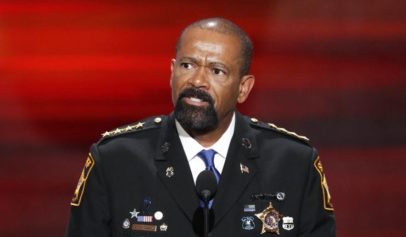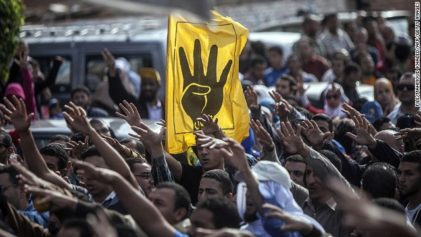As Egypt braces for clashes between supporters of ousted President Mohammed Morsi and the military that removed him in a coup, Islamists across the region believe that the problem there was not in the governing style and edicts of the ruling Muslim Brotherhood, of which Morsi was a member. The problem, they believe, was democracy itself.
“The message will resonate throughout the Muslim world loud and clear: Democracy is not for Muslims,” Essam el-Haddad, Morsi’s foreign policy adviser, wrote on his official Web site shortly before he was captured by the military, according to the New York Times.
Haddad warned that the overthrow of an elected Islamist government in Egypt, which is widely considered the symbolic heart of the Arab world, would fuel more violent terrorism than the Western wars in Iraq and Afghanistan.
Haddad blamed the hypocrisy of the West for sitting idly by and letting it happen.
“The silence of all of those voices with an impending military coup is hypocritical,” Haddad wrote, “and that hypocrisy will not be lost on a large swath of Egyptians, Arabs and Muslims.”
Critics of the Muslim Brotherhood in Egypt have faulted Morsi for trying to seize too much power too quickly, much like his predecessor, Hosni Mubarak, who was ousted by a revolution.
But ultraconservative Islamists who gathered at Cairo University said their experiment in electoral politics — which they believe is a deviation from God’s law — had been a bad idea.
“Didn’t we do what they asked?” said Mahmoud Taha, 40, a merchant. “We don’t believe in democracy to begin with; it’s not part of our ideology. But we accepted it. We followed them, and then this is what they do?”
As the Times noted, in countries like Turkey, Tunisia and now Egypt, the Islamists “have all been caught up in crises over the secular practicalities of governing like power sharing, urban planning, public security or even keeping the lights on.”
But there are Islamic voices in the region who have a more succinct analysis of where the Brotherhood went wrong.
“The Brotherhood went too fast, they tried to take too much,” Sheik Abu Sidra, an influential ultraconservative Islamist in Benghazi, Libya, told the Times yesterday after the Egyptian military deposed and detained Morsi and began arresting his Brotherhood allies.
Sidra acknowledged that the developments in Egypt will make his job harder in Libya, as he tries to convince Benghazi’s Islamist militias that they can put down their weapons and trust in democracy.
“Do you think I can sell that to the people anymore?” he asked. “I have been saying all along, ‘If you want to build Sharia law, come to elections.’ Now they will just say, ‘Look at Egypt,’ and you don’t need to say anything else.”
Indeed, it is the implementation of Sharia law, using religious edicts as the law of the land and severely restricting the rights of women, that has turned many against the Islamists.
Emad al-din al-Rashid, a prominent Syrian Islamist and scholar now based in Istanbul, faulted the Muslim Brotherhood’s style of governance in Egypt.
“The beginning was a mistake, a sin, and the Brotherhood were running Egypt like they would run a private organization, not a country,” he said. “They shouldn’t have rushed to rule like they did. If they had waited for the second or third elections, the people would have been asking and yearning for them.”
Now Egypt is on edge, wondering what comes next. The army claims it will allow peaceful protests of pro-Morsi forces while it prepares to bring charges against the ousted president and Brotherhood officials for such vague offenses as “insulting the judiciary.”


